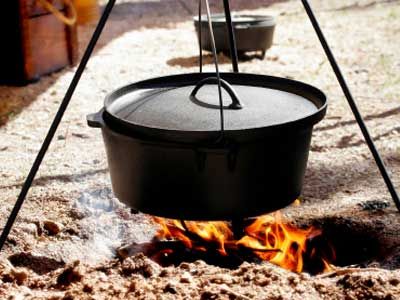Imagine a world where you could chat with your closest neighbors while you were putting your laundry on a conveniently placed and eco-friendly clothesline. If you ran short of flour, you could pop next door and borrow some, and there would always be someone to help with babysitting if you needed a hand.
Those days may have evaporated around the time women began burning their bras, but the idea of a nurturing neighborhood doesn't have to be a daydream. In tough times, people come together, and becoming allies with your neighbors is a good way to make life easier and nicer for everyone in the vicinity. Want to create a few fun summer memories while getting to know the people you're sharing the community with? Throw a block party.
Advertisement
Getting a Block Party off the Ground
Hosting a block party doesn't have to be a hassle, but you'll need to start early. A two-month head start isn't too much, and even at that, you'll need some help. A quick survey of the interest level in the neighborhood is a good place to begin. It'll also give you an idea of the scale you'll be dealing with. A block party for a group of 30 homes is a different animal from one that could potentially involve 200 or more.
Start knocking on doors to see if you can generate some passion for the project. Chances are, you'll find some like-minded neighbors who will be willing to help out.
Planning a Block Party
Once you have a core group of supporters who'll act as casual co-hosts, you can begin planning:
- Location. For a small party, you can use a single property, but for a larger gathering, you may want to move the venue to a local park. You might also consider getting a permit to block through-traffic on your street. That way, you'll have a large, safe area that's convenient and within easy walking distance for everyone.
- Finances. Permits, food, and hiring local talent like a DJ can add up, so you should have an idea of how you might be able to finance the party without any one person assuming too much of the burden. You can always charge admission, ask folks to pitch in food or cash, or encourage local businesses to contribute goods and services. Sponsor a bake sale to help generate revenue. If you start far enough ahead, and you're willing to pound the pavement, you might score some great, fun stuff, either borrowed, free or for a nominal fee.
- Entertainment. Offering a meal is a surefire way to get people together, but once they're all in one place, having some entertainment, especially for the kids, is a must. Face painting, fireworks, karaoke, basketball and lawn darts are all options, but there are lots more. You might even consider holding a drawing for prizes. The idea is to have something fun for all ages that will keep people around long enough to get to know one another better.
- Food. From having the whole affair catered to opting for a pitch-in with cold cuts, your budget, schedule and the unique dynamic of your neighborhood will determine how food-focused your bash will be. Grilling is a time-honored block party tradition that usually works pretty well, and you can borrow a few neighborhood grilling experts (and their grills) to join in the fun. Need to generate some buzz? Try holding a best barbecue contest or a chili cook-off as part of the party.
Putting it All Together
Now that you have a plan, get invitations out as soon as possible, and be sure to include an RSVP request. If you have helpers, co-hosts, sponsors or just friendly neighbors willing to drag their patio furniture across the street for an afternoon, have a way to communicate with them, and keep them in the loop.
A follow-up reminder a week before the party is a good idea, too. Just place a little note on everyone's doorstep with a recap of the date, time, location, directions and a reminder of what they promised to bring or do. If you expect people to bring their own beverages or chairs, or prefer to pet-proof the proceeding, let folks know well in advance. Likewise, if this will be a non-alcoholic party, make sure to pass the word. If you'll be using neighbors' properties, consider writing up a waiver for everyone to sign in case of potential mishaps.
A couple of days before, start getting supplies organized and inventoried, and delegate specific tasks, like setting up tables, rounding up garbage cans and coolers (you'll need plenty), mowing lawns and putting up banners. You'll also need a few helpful souls to clean up after the shindig and return items to their rightful owners. Kids are great for this and usually come cheap.
On party day, take a deep breath and exercise your sense of humor as well as your organizational skills. There are bound to be a few disasters, but they're the material that makes for hilarious storytelling at next year's party.
Advertisement



